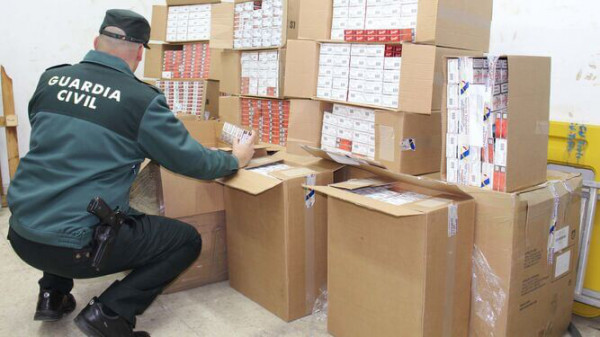It is 2021 and we are still not out of the worst crisis in recent times. The Spanish government sees its coffers empty after the debacle of the last few months and wants to raise some 6 billion euros with a general tax increase this year.
Isn't it unrealistic to think that in the midst of the crisis we should try to fill the state's coffers with taxes?
The Ministry of Finance is considering further tax increases in all areas. Among other things, special taxes on tobacco products, such as cigarettes, are being considered.
The Spanish government told Europa Press a few days ago that it is necessary to reduce the price difference between tobacco in Spain and the rest of Europe in order to reduce the number of smokers in Spain. The Ministry of Finance is basing this on recommendations from the health authorities. It is not yet known exactly to what extent and when the government intends to implement this tax increase, but tobacco companies are already fearing the worst.
In any sector, a tax increase is tough, but considering that in the tobacco sector in Spain we are talking about a tax burden of almost 80% of the retail price, this could be a real disaster.
How could this affect the increase in smuggling?
The soaring prices of cigarettes in Spain could lead to a sharp increase in black market activity. Spain is one of the main gateways for smuggled tobacco into Europe, and a sharp rise in cigarette prices at a time like the present, with an economy weakened by the effects of the pandemic, could have dire consequences.
More than 70% of those surveyed in Spain believe that an increase in the price of tobacco would be directly linked to an increase in smuggling and would therefore have the opposite effect to that intended by the tax increase: if smuggling increases, the number of smokers does not decrease and sales of tobacco products do not increase.
Why is smuggling expected to increase after the price increase?
In 2011, following the Zapatero government's big tax hikes in Spain, tobacco smuggling increased considerably on the Spanish mainland. The economic crisis in which the country had been mired since 2008 provided the ideal conditions for these illegal practices to emerge and spread. Consumers went in search of cheaper alternatives and roll-your-own or pipe tobacco boomed. Data from 10 years ago show that, with a base very similar to that of Spain at the time, we can expect very similar consequences in 2021.
Why has smuggling stagnated in recent years after the initial boom?
Since 2016 (when the price of a packet of cigarettes doubled from its price in 2006), there have been no further tax increases on cigarettes until 2020. As a result, tobacco smuggling has stabilised and even decreased somewhat, thanks in part to the good work of the anti-smuggling authorities.
In 2020, there will be 4 years without tax increases.... but this peace between the tax authorities and tobacco companies could come to an end in 2021 if the Spanish government's plans are implemented.
What are the immediate consequences for Europe following the cigarette tax hike in Spain?
The situation could lead to a shift of business to the illicit trade, contrary to the Spanish government's expectations, with a consequent loss of revenue for the tax authorities, as was the case in 2011. Currently, annual revenue is around €9 billion and has remained stable in recent years.
At present, and with the coronavirus crisis in full swing, it is not strange to think that this phenomenon could be repeated and, once in Spain, the goods reach all corners of Europe, since in central and northern Europe they reach even higher selling prices,
Moreover, it should be borne in mind that smuggled tobacco offers no guarantees, no quality or health controls, and the low price and unregulated distribution channels facilitate access to tobacco for minors.
How to avoid "encouraging" smuggling by raising taxes?
The mechanism of cigarette taxation is rather complex, as there are different types of taxes which, depending on their amount, would have a direct impact on an increase in the price of all cigarette brands, distinguishing between the most expensive brands and the cheapest products.
During the crisis, a tax increase that would force cheaper brands to increase their prices significantly should be avoided, as their consumers show a greater elasticity to switch brands or even use alternatives from the illegal market, especially now with an even more difficult economic situation.
During the pandemic in Spain, restrictions on leisure, the absence of tourists and even the use of masks have had a negative impact on cigarette sales.
How can we save legally despite the tax increase?
Cheaper ways of smoking legally, such as buying loose tobacco to make your own cigarettes with an electric cigarette injector, have boomed in recent years. Sales of automatic cigarette injection machines have reached until recently unthinkable heights. In our shop you will find a wide selection of electric cigarette injectors.
Our advice is that you, always within the limits of legality, opt for products that fit your wallet, but always with the best possible quality. Remember that just by making your own cigarettes at home you are already saving more than 25 euro cents per cigarette, as you can read in our blog "How can I save money when using a cigarette injector?"
We wish you all a happy 1st of May.
See you next week!
Your Powerfiller-Smoking-Team

